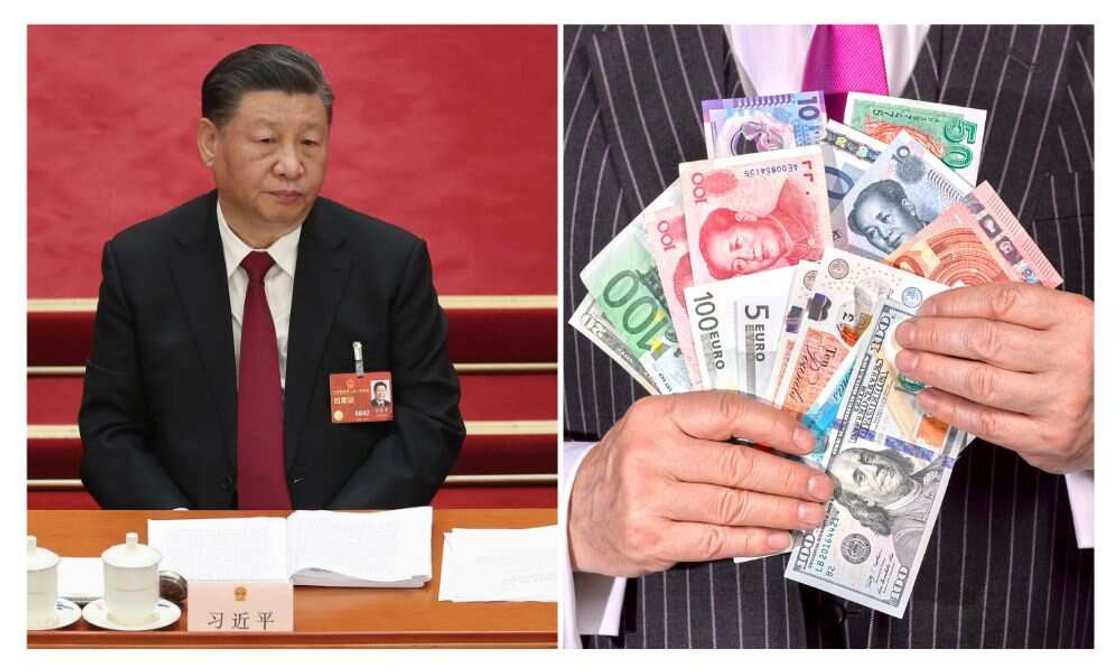China Moves to Create New Central Bank to be Controlled by Cabinet And The Executive
- China is abolishing its current People's Bank of China, its central bank for a new one
- The new body will be under the purview of the cabinet and the executive
- The Chinese legislator will vote on Friday to amend the constitution to allow a new financial regulator to come on stream
PAY ATTENTION: Click “See First” under the “Following” tab to see Legit.ng News on your Facebook News Feed!
The Chinese government will form a new financial regulatory body to reduce oversight, substituting its banking and insurance regulator.
It will also set up a new data body as part of a broader government reform revealed on Tuesday, March 7, 2023.

Source: Getty Images
New management to be formed for a new central bank
Reuters reports that the new recommendation would bring control to the financial services industry, excluding the securities sector, under the State Council or cabinet, to strengthen oversight.

Read also
March 11 Election: Controversy ensues as INEC suspends resident electoral commissioner in PDP-controlled state
PAY ATTENTION: Subscribe to Digital Talk newsletter to receive must-know business stories and succeed BIG!
President XI Xiping revived his call for reforming the Communist Party and state institutions.
The new plan will abolish the Banking and Insurance Regulatory Commission (CBIRC), with its responsibilities moved to the new management and specific central bank and securities regulator functions.
Current staff to be reduced
Under the new policy, staff members at the central level of state institutions will be cut by 5%.
The statement reads:
"The overhaul of financial regulation framework reflects the new focus on 'dual circulation' - both domestic and global circulation of the economy - and 'uniform national markets'," said Winston Ma, an adjunct professor at New York University law school.
"Going forward, different financing markets - equity, debt, and insurance - are set to be regulated more holistically, and at the same time, financial markets regulation and industry policy-making are more integrated than before," he said.
The country's financial sector is currently controlled by the People's Bank of China (PBOC), the CBIRC, and the China Security Regulatory Commission, with the cabinet's Financial Stability and Development Committee having oversight.
According to the statement centralised power appeals to many Chinese.
The lawmakers will vote on the constitutional reforms on Friday, March 10, 2023.
Nigeria’s debt dits N49 trillion becomes 5th most indebted African country to China
Recall that Legit.ng reported that by the time President Muhammadu Buhari exits office on May 29, 2023, he will be leaving a mountain of debt pegged at about N49.93 trillion, covering both external and domestic debt.
The amount is nearly 300% higher than the debt he met in 2015. Nigeria’s total debt portfolio now stands at about N49.93 trillion, with the government borrowing N3.73 trillion in the last two months.
Data indicates that the Nigerian government raised N1.599 trillion in the fourth quarter of last year.
Source: Legit.ng


